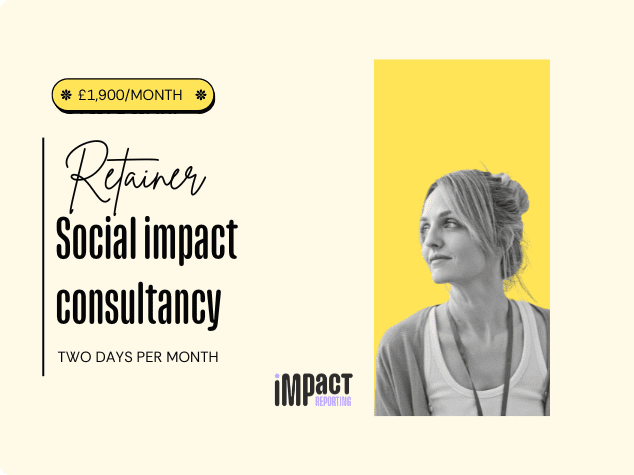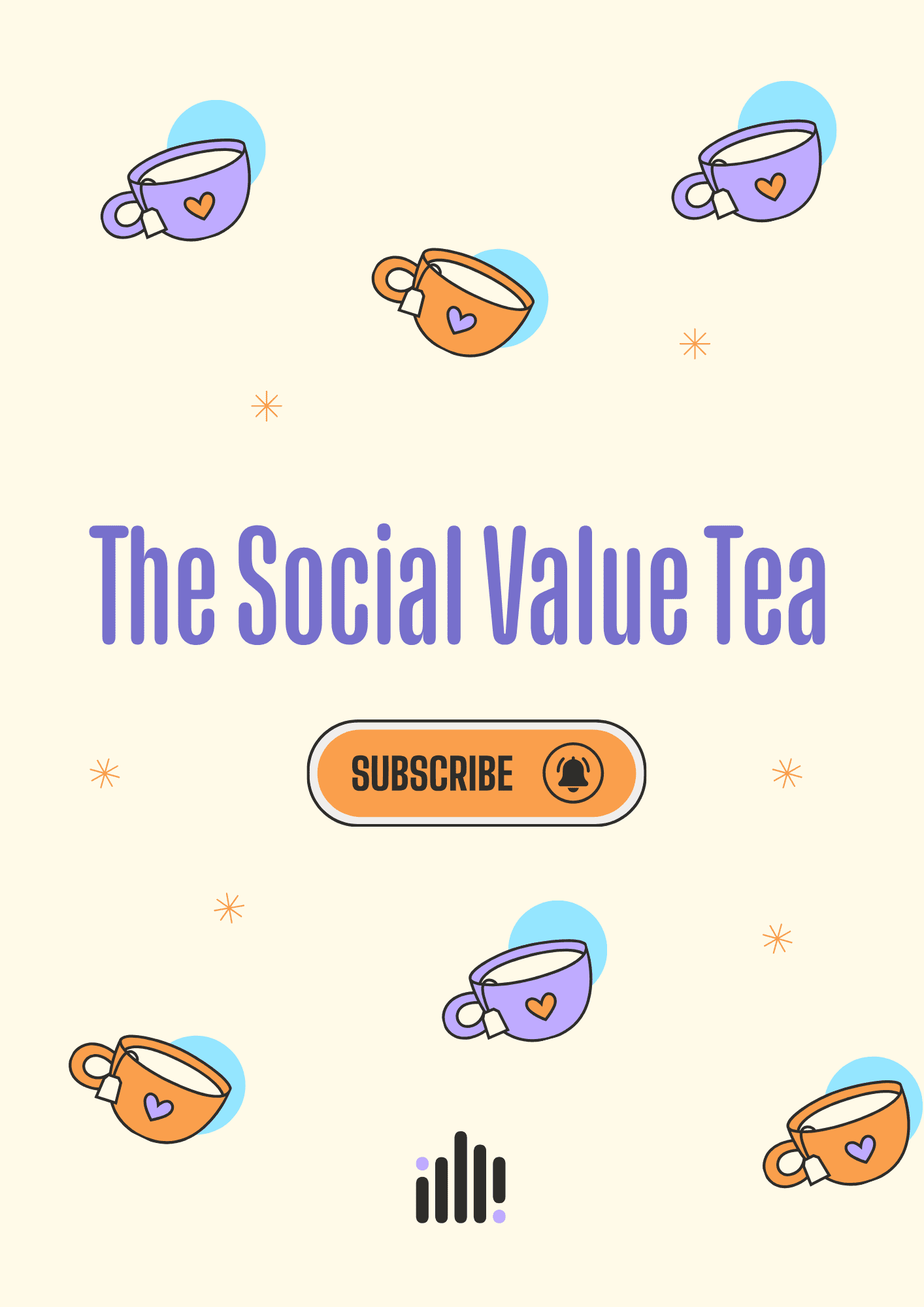Social value reporting done right - and free for all
MeasureUp aligns with the UK Treasury’s new definition of social value as the “wellbeing of the population” value. Helping you evidence the difference you're making in the world - properly.

Check out our new course! Introduction to Social Value 102. Access for free
MeasureUp aligns with the UK Treasury’s new definition of social value as the “wellbeing of the population” value. Helping you evidence the difference you're making in the world - properly.

You’re not alone.
MeasureUp tackles one of the most challenging aspects of social value assessment: how to value real, meaningful impact. Traditional approaches often focus on outputs, but MeasureUp moves the conversation forward by shifting the focus to outcomes-what truly matters to communities and the environment.
Developed by Impact Reporting, State for Life, and PRD, MeasureUp is a free, open-source valuation framework for Social Value and Impact practitioners. It provides transparent tools to measure, value, and report on economic, social, fiscal, and environmental outcomes — all aligned with wellbeing and the 2020 UK Government Green Book definition of social value and its recommended approach to measurement and evaluation.
Explore tool
MeasureUp is guided by a set of principles that shape how values are sourced, updated and used. Key principles include:
Accuracy over scale – focus on credible values, not inflated or unsubstantiated claims.
Transparency – all data sources, assumptions, limitations, and adjustments are published.
Accessibility – free to use; designed for both beginners and experienced practitioners.
Inclusive evidence – recognising lived experience and stakeholder testimony as central to understanding impact.
Continuous improvement – updates, feedback, verification, increasing rigour over time
(Check out our webinar to learn more)
At King’s Cross, Related Argent moved beyond basic output metrics to build a bespoke social value framework - using Impact Reporting and its MeasureUp framework to quantify outcomes such as wellbeing, community connection and local opportunity. In its first year the development measured £6.6 m in monetised social value.
View case studyWe use wellbeing as the core lens for understanding social value. That means asking not just “what happened” but “how did it affect people’s lives and their sense of wellbeing?”
What is wellbeing: Based on definitions used by UK bodies (ONS, What Works Centre for Wellbeing, etc.), covering dimensions like feeling good, functioning well, being part of community, sustainability, etc.
ONS4 Questions: To measure subjective wellbeing: “overall life satisfaction”, “worthwhile”, “happiness yesterday”, “anxiety yesterday” on 0-10 scales.
WELLBY (“Wellbeing Year”): A unit representing a one-point increase in the life satisfaction scale for one person over one year. Wherever possible, MeasureUp uses WELLBY to value changes in wellbeing.

Not all measurement is equally rigorous. MeasureUp offers graded levels of certainty, so organisations can choose what fits their resources and stage of evaluation:
Use case case/what it involves:
Planning, estimation using proxies; limited data; quick approximations.
Use case case/what it involves:
Greater specificity: using differentials, better demographic or contextual adjustment; more refined proxies.
Use case case/what it involves:
Measurement of actual results: surveys, direct measurement rather than just proxies; more robust evidence.
Use case case/what it involves:
Highest level of confidence: includes assessment of counterfactual, attribution, duration/dropping-off, ensuring value claimed is really due to the intervention.
We believe in being upfront about what we can’t assume:
Proxies are estimates: early levels (Bronze, Silver) are less precise.
Causality is hard: without counterfactuals or strong attribution work, it’s easy to overstate impact.
Outcomes may have unintended negative effects, or fade over time (drop-off).
Data quality, sample sizes, representativeness… all matter.
All values in MeasureUp are adjusted to a common price year (currently 2023) using government GDP deflators. Wellbeing values are similarly adjusted, also taking into account marginal utility of income etc., consistent with Green Book guidance.
Who can use MeasureUp? Anyone: private, public, non-profit. All free.
How to choose a level of rigour? Depends on your capacity, what evidence you have, how much confidence you need in your results. Use Bronze for early planning; work up the levels as more data becomes available.
How to avoid overclaiming? Use Attribution, Counterfactual, Displacement etc.; discount where needed. Be transparent about limitations.
MeasureUp is designed to be free and open for everyone to use. But we know that navigating valuation frameworks, wellbeing data, or procurement requirements can feel complex.
If you’d like tailored advice on how to apply MeasureUp in practice — from building your social value strategy to evidencing results in bids – our consultancy team can help.
Get in touch to explore how we can support you.
Contact us

Sign up for The Social Value Tea and be the first to get access to our content, news and upcoming events.